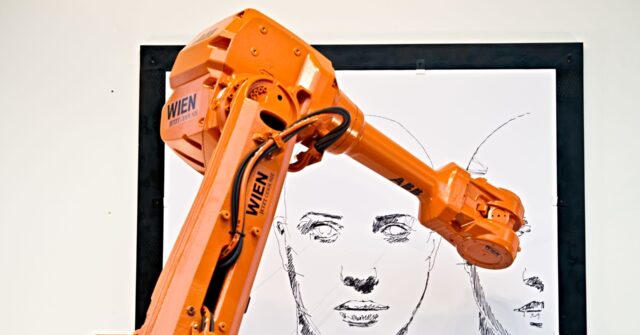Netflix chief Ted Sarandos is making no secret of the fact his company is eager to use AI in “content production” because it’s faster and less expensive.
“Netflix Inc. has begun using artificial intelligence video generation software from startup Runway AI, testing the waters with a technology that’s controversial in Hollywood,” reports the far-left Bloomberg. “Sarandos said the company is using AI in content production. That includes creating special effects shots more quickly and cheaply than it previously had been able to with traditional visual effects tools and processes.”
The AI future has arrived, and the same elites who said nothing while the working class got wiped out by automation believe the are super-special and deserve to be inoculated from automation in the form of AI.
The big AI Hollywood player now is a company called Runway, which will soon be capitalized to nearly a billion dollars and has already made a deal with Lionsgate to use the studio’s copyrighted content to teach AI how to better create content for film and TV projects:
More recently, Runway has pushed deeper into the world of animation and special effects. Earlier this month, the company started rolling out a new AI model called Act-Two that is meant to make the motion-capture process — traditionally clunky, pricey and time consuming — simpler and cheaper. The model, which works with Runway’s flagship Gen-4 AI system, can map a video of a person’s body movements onto animated characters.
And it’s not just Netflix.
“The [Disney Grooming Syndicate’s] use of Runway’s AI video tools, which has not previously been reported, could raise concerns in the entertainment industry. Many film and TV professionals are anxious about AI’s impact on their livelihoods.”
Why do certain people believe they should be inoculated from progress as though the movie studio, the factory, the coal mine, or the computer graphics company is in the business of employing people instead of in the business of making a profit?
Why should we draw the “progress” line at the entertainment field? Is that fair to the people who produced stagecoaches, radio dramas, push mowers, and landline telephones?
This attitude is nothing more than a galling and undeserved sense of entitlement. And it’s not as though I’m immune. I’d like to think I’m irreplaceable, but believe me, I’m not. AI is aggressively moving into online content creation, and if I’m ever informed I’ve been replaced by a machine—yeah, it will sting both my pride and pocketbook, but you won’t read me declaring it “immoral” and an “outrage” on social media written with the help my iPhone — you know, the iPhone that replaced the landline that replaced the telegraph that replaced the Pony Express that replaced the jungle drums. That would be hypocritical.
Oh, and I’m not a baby.
Wouldn’t it be great if everything remained the same forever? Don’t you miss Polio? Isn’t it a shame we put all those Polio specialists out of work?
As far as the current state of entertainment goes, when I look around at what we have now by way of human creativity, I welcome my AI overlords.
With rare exceptions, there is nothing out there that doesn’t already feel like it’s been created by a computer—from the screenplay to the final product. Jurassic World: Rebirth, Superman, Thunderbolts, this Avatar crap—not to mention all these TV procedurals. Blah, blah, generic blah. This stuff is already so fake, it practically looks like a cartoon.
AI will never be capable of producing a true piece of art like The Sopranos, but Law & Order, CSI, NCIS, Star Wars, Fast & Furious…? Come on.
Sorry, progress waits for no one. Why? Because no one is indispensable. Adapt or whine and then starve. It’s up to you.
John Nolte’s first and last novel, Borrowed Time, is winning five-star raves from everyday readers. You can read an excerpt here and an in-depth review here. Also available in hardcover and on Kindle and Audiobook.
Read the full article here
